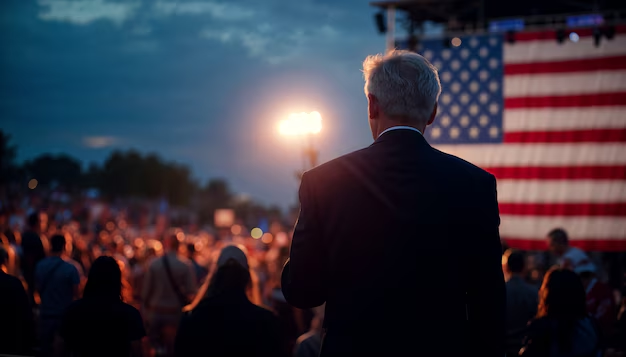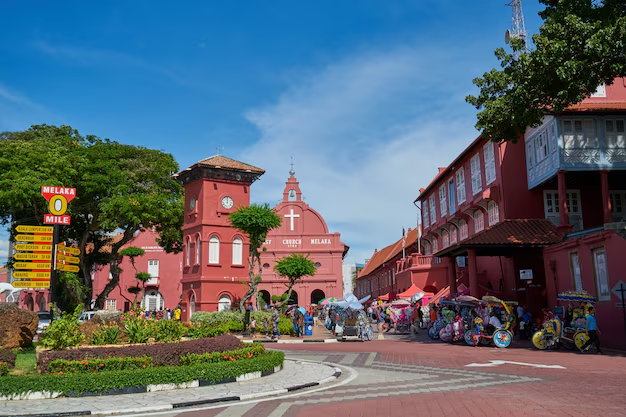
The Political Journey of Donald Trump
Donald John Trump, born on June 14, 1946, in Queens, New York, is a figure who has left an indelible mark on American politics and global affairs. Known for his business acumen and unorthodox political style, Trump transitioned from a real estate mogul to the 45th President of the United States, serving from 2017 to 2021. His journey reflects a blend of entrepreneurial success, media influence, and a polarizing political career.
Early Life and Business Career
Trump was born into a wealthy family, with his father, Fred Trump, being a prominent real estate developer. After graduating from the Wharton School of the University of Pennsylvania with a degree in economics, Trump joined his father’s business, focusing on expanding its real estate operations. Over the years, he built an empire under the Trump Organization, with ventures in real estate, hospitality, and entertainment.
His name became synonymous with luxury, marked by iconic properties like Trump Tower in New York City. Beyond real estate, Trump gained widespread recognition through his role in the reality TV show “The Apprentice,” which solidified his image as a decisive business leader.

Entry into Politics
Trump’s political ambitions were evident long before his presidential bid, with occasional speculations about his interest in running for office. However, it was not until 2015 that he formally announced his candidacy for the presidency as a Republican. His campaign, characterized by the slogan “Make America Great Again,” resonated with many Americans who felt disillusioned by traditional politics.
Trump’s unfiltered rhetoric, focus on immigration reform, economic nationalism, and promises to “drain the swamp” in Washington, D.C., set him apart from conventional politicians. Despite facing skepticism from political analysts and media outlets, he secured the Republican nomination and won the 2016 election against Democratic candidate Hillary Clinton.
Presidency (2017-2021)
Trump’s presidency was marked by a series of significant domestic and international developments:
- Economic Policies:
- Implemented tax reforms through the Tax Cuts and Jobs Act of 2017, aimed at stimulating economic growth.
- Focused on deregulation and renegotiated trade deals, including the United States-Mexico-Canada Agreement (USMCA).
- Immigration and Border Security:
- Advocated for stricter immigration policies and initiated the construction of a border wall along the U.S.-Mexico border.
- Implemented travel bans targeting several predominantly Muslim countries, sparking legal challenges and public protests.
- Foreign Relations:
- Adopted an “America First” foreign policy, emphasizing national interests over multilateral agreements.
- Engaged in high-stakes diplomacy with North Korea, holding historic meetings with leader Kim Jong-un.
- Withdrew the U.S. from international agreements, including the Paris Climate Accord and the Iran nuclear deal.
- Judicial Appointments:
- Appointed three Supreme Court justices, significantly influencing the judicial landscape for years to come.
- COVID-19 Pandemic:
- Faced widespread criticism and support for his handling of the COVID-19 pandemic, with debates over public health measures and economic shutdowns.

Post-Presidency and Ongoing Influence
After losing the 2020 election to Joe Biden, Trump refused to concede, claiming widespread electoral fraud without substantial evidence. This culminated in the January 6, 2021, Capitol riot, leading to his second impeachment by the House of Representatives, though he was acquitted by the Senate.
Despite leaving office, Trump remains a dominant figure in American politics. His influence over the Republican Party is profound, with many candidates aligning with his political ideology. He has also hinted at potential future presidential runs, keeping his supporters and critics alike attentive to his next moves.
Legacy and Impact
Donald Trump’s legacy is polarizing. Supporters view him as a transformative leader who challenged the status quo, prioritized American interests, and revitalized conservative values. Critics argue that his rhetoric and policies deepened societal divisions and undermined democratic norms.
Regardless of one’s perspective, Trump’s impact on American politics is undeniable. His tenure reshaped the political landscape, influencing discourse around nationalism, populism, and the role of media in democracy.
Conclusion
Donald Trump’s political journey is a testament to the power of media, the appeal of outsider candidates, and the dynamic nature of American democracy. Whether celebrated or criticized, his influence will be studied and debated for generations to come.



